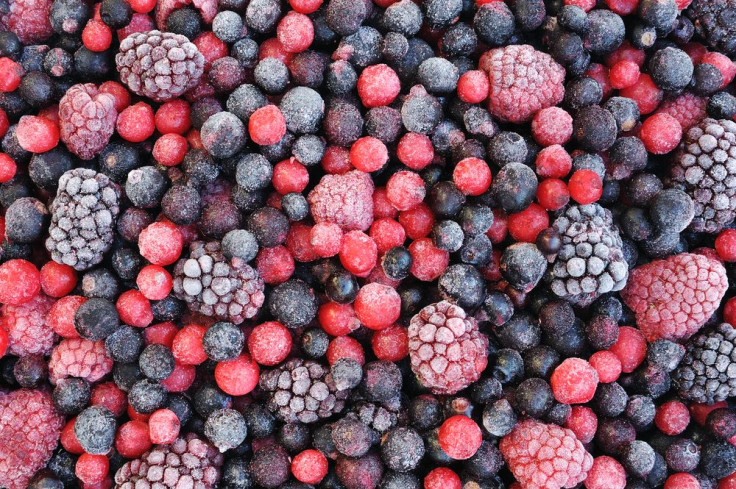The 3 Healthiest Frozen Food Brands: Making Quick, Easy Meals That Are Actually Good For You

Frozen foods can be everything for that lonesome not-so-good-at-cooking bachelor, or really anyone who’s just too busy or on a strict budget. Cooking them is as easy as throwing them in the microwave and pushing a couple of buttons — avoiding a cold center in your food, on the other hand, is a different issue. Although frozen foods have entire aisles dedicated to them at the supermarket, that wide range of choices presents a challenge to consumers.
Just a few years ago, frozen dinners were considered rather unhealthy. Their caloric content was and still is, mostly on the lower side — around 300 calories — meaning that a person who eats them can’t survive off three frozen meals a day. Eating a total of about 1,000 calories each day just isn’t enough to support the metabolic processes of a human being. So, someone who eats one of these for dinner may end up eating more afterward to compensate. Add to that a scarcity of vegetables and a high sodium content (about 700 to 1,800 milligrams), and you’re more than likely to harm your body.
Frozen food makers have been paying attention to a growing health trend in the U.S. However, as obesity rates continue to remain high. Today, there’s a wealth of options for good, healthy frozen food, and that doesn’t only include frozen dinners. Here are three of the healthiest options for you:
Amy’s Kitchen: Natural and Organic Foods
As one of the pioneers in organic frozen food, California-based Amy’s began rolling out frozen vegetarian meals in 1987. Since then, more than 88 different frozen meals have been sold in supermarkets, from burritos and veggie burgers to Indian food and pizza. As an organic brand, Amy’s makes sure to avoid genetically-modified foods, which have questionable effects, while also providing options for vegans and people with food allergies or celiac disease.
Some examples of the food they bring us include their Light & Lean Black Bean & Cheese Enchilada, an organic veggie wrap with brown rice, sweet corn, and carrots. If you need something quick and handheld, their Southwestern Burrito comes with fire roasted poblano peppers, jalapeños, black olives, organic corn masa, pinto beans, and Monterey Jack Cheese in an organic whole wheat tortilla. Both meals contain about 240 to 290 calories, 4 to 10 grams of fat, 4 to 6 grams of fiber, 8 to 12 grams of protein, and 480 to 680 milligrams of sodium — still on the lower side.
Healthy Choice
This major frozen health food brand began in after former ConAgra Foods CEO Mike Harper suffered a heart attack in 1985, The New York Times reported. Healthy Choice rolled out its first frozen dinner in 1989, and still offers “lower-fat versions of the fatty foods people habitually consume.”
Recently, the brand won Self magazine’s Healthy Food Award for “Best Frozen Meat Meal” with its Chicken & Potatoes with Peach BBQ Sauce meal. The Top Chef-inspired meal is part of their café steamers line of products, containing 250 calories, 3.5 grams of fat, 5 grams of fiber, 15 grams of protein, and 520 milligrams of sodium. Other meals include a Chicken & Rice Cheddar Bake and General Tso’s Spicy Chicken, both of which have less than 300 calories — most Healthy Choice meals are around 300 calories — and about 5 grams of fat.
Cascadian Farm Organic
Frozen fruits and vegetables are awesome for making smoothies, and they can also provide similar nutritional benefits to the freshest of produce. Cascadian Farm is “a working, active, productive farm dedicated to bringing wholesome organic food to your table,” the company’s website says. It all began about 40 years ago when its founder, Gene Kahn, wanted to farm sustainably, and with consideration for the Earth.
The company offers a range of food options, from granola bars to fruit spreads, but its frozen fruits and vegetables are the subject of importance for this article. The company sells a wide range of fruits and vegetables, from broccoli to winter squash and blackberries to sliced peaches. Consumers can also buy medleys, such as the Thai-Style Stir Fry Blend, which comes with organic green beans, broccoli, carrots, bean sprouts, and onions.
Frozen fruits and vegetables can, arguably, be even more nutritious than the ones you pick up at the store. That’s because they begin to lose their nutritional value from the moment they’re picked. If they’re frozen, they undergo the freezing process soon after they’re picked, locking in their nutrients. Besides using them in smoothies, they can also be steamed, thawed, or cooked for use in homemade dinners.
While many of the healthier frozen foods you’ll find in the grocery store come low-calorie, making up for that deficiency is as easy as eating a few more fruits and vegetables, which are also low-calorie but high in fiber that will fill you up. Perhaps the most important thing you can do, however, is to read the labels of any food you get. Only then will you know what you’re really eating.



























